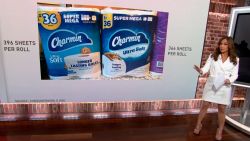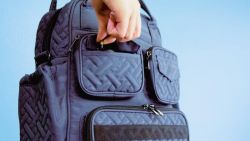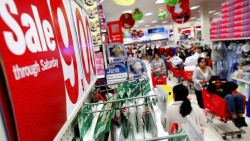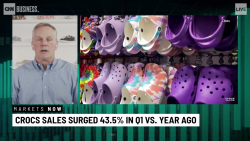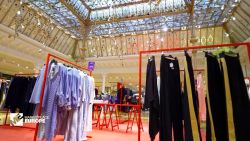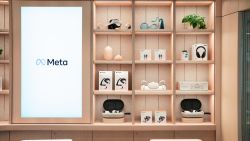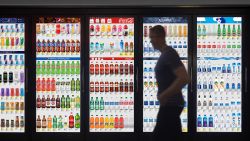During the coronavirus pandemic, supermarkets and retail stores have added a variety of safety features. Workers have been required to mask up and, more recently, most customers too. But most have yet to tackle what could be another important safety measure — changes to the systems that keep the stores hot and cold, and that can potentially recirculate air carrying the virus that employees and customers alike breathe.
Now, as the virus continues to tear through the country with few signs of abating, the air in stores is coming under closer scrutiny. Some epidemiologists, engineers and labor leaders hope that changing air filtration — a longer-term intervention that requires more financial investment — in stores during the pandemic will help protect against coronavirus spread, as well as indoor air pollution, not to mention any future airborne pathogens humanity may face.
In early July, after the World Health Organization released a report that acknowledged the virus could possibly be spread through the air in crowded indoor spaces, upgrading air filters in stores became a larger focus for unions and other industry groups.
To limit the spread of the virus indoors from aerosols, some epidemiologists, biologists and engineers say that stores should use a MERV 13 filter or above in their ventilation systems. MERV stands for “minimum efficiency reporting value,” and it’s how filters are rated in their ability to trap tiny particles. High-efficiency filters in the 13-to-16 MERV range are often used in hospitals, nursing homes, research labs and other places where filtration is important.
Improved filtration in stores would be “an added layer” of protection for workers, Marc Perrone, president of the United Food and Commercial Workers union, said in an interview with CNN Business. During a press call last month with reporters and Senate Democrats Elizabeth Warren and Sherrod Brown, Perrone called on retailers to install these “medical grade air filtration systems.”
Grocery and retail stores can be hosts to coronavirus spread because they are indoors and often crowded. Indoor spaces are riskier than outdoor spaces because it can be harder to keep people at least six feet apart and ventilation is not as good as it is outdoors, the CDC says.
“The risk of exposure to respiratory pathogens in a closed environment is always higher than an open environment,” said Erin Sorrell, an assistant professor in the department of microbiology and immunology at Georgetown University.
Some chains have already started to upgrade their filters.
“In light of COVID-19 and the latest CDC guidance, we are also upgrading to hospital-rated filtration systems of MERV 13 or higher wherever technically possible,” said a spokesperson for German discount grocery chain Lidl, which has around 100 US stores.
Covid-19 is thought to spread mainly from person to person, “mainly through respiratory droplets produced when an infected person coughs, sneezes, or talks,” according to the CDC.
But some scientists have been pushing health agencies to recognize the potential airborne transmission of the coronavirus through tiny droplets of virus that spray from our mouths, become aerosolized and then linger in the air.
In early July, 239 scientists wrote an open letter saying that public health officials were ignoring these tiny droplets of virus, or aerosols, as a likely means of transmission.
Days after the letter was released, the WHO released a report saying that airborne transmission of the coronavirus through aerosols “cannot be ruled out” in outbreaks in some indoor settings.
“Aerosols are very small particles usually less than 5 microns in diameter. MERV 13 and above filters can trap such small particles,” said Wafaa El-Sadr, professor of epidemiology and medicine at Columbia University.
Dennis Knight, vice-chair of an epidemic task force at The American Society of Heating, Refrigeration and Air-Conditioning Engineers, a trade association, recommends that “filtration systems be upgraded to MERV 13 or better, if possible.”
The costs to upgrade filtration systems may not be exorbitant for individual stores, but replacing them across hundreds of stores could get expensive for chains. Prices vary across regions and by manufacturer, and filtration experts said higher demand for filters during the pandemic has caused prices to rise.
Knight said he has seen a range for filter upgrades from $0.05 per square foot to $0.45 cents per square foot of a store or building. (Grocery stores average around 40,000 square feet.)
The National Retail Federation, an advocacy group for the retail industry, is also paying closer attention to air filtration. It held an informational webinar last week for companies on filtration systems.
Building environment experts hope that the filtration efforts stores and other buildings implement during the coronavirus will have an impact long after this pandemic ends.
“We also hope an elevated air standard will be in place even after vaccines and therapeutic solutions are available,” a group of more than 600 engineers and architects wrote to the WHO last week. “Indoor and outdoor air pollution has been a persistent problem especially for the most vulnerable populations for decades.”
—CNN’s Sandee LaMotte and Holly Yan contributed to this article.




